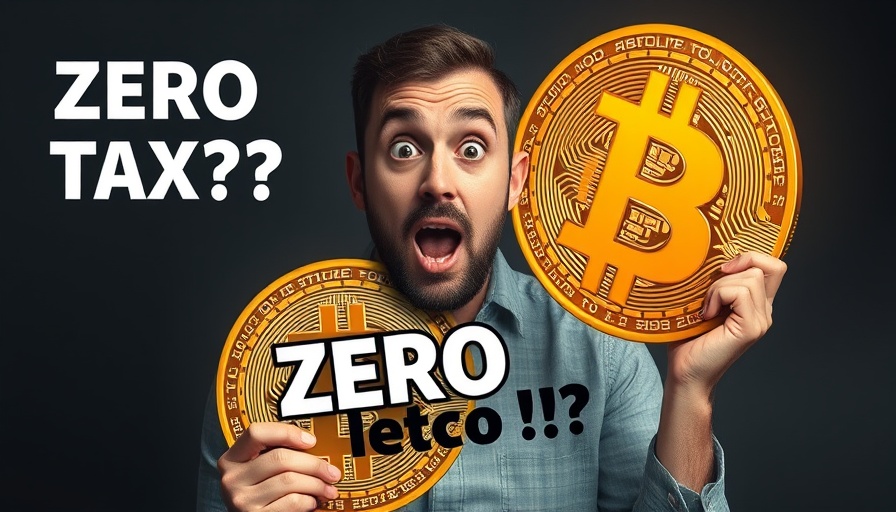
Understanding Crypto Taxation Changes in Portugal
Portugal has gained an international reputation as a crypto tax haven, particularly before 2023 when it operated with vague legal guidelines regarding cryptocurrency taxation. However, significant shifts in regulations have occurred, prompting a necessary reevaluation of its status. As we approach 2025, investors must navigate the evolving landscape of crypto taxation within this European nation.
In 'The Secret to Paying ZERO Crypto Tax in Portugal', we explore the changing landscape of crypto taxation and its implications for investors, prompting us to delve deeper into the implications of these regulatory shifts.
Upcoming Tax Regulations for Crypto in 2025
Since 2023, Portugal's legislation mandates that cryptocurrency is subject to taxation. This means that all income from crypto holdings must now be reported to the Portuguese tax authorities. Specifically, taxpayers are required to pay a capital gains tax of 28% on gains realized from crypto held for less than a year. However, some exceptions exist where individuals can avoid taxation altogether.
Zero Capital Gains Tax: The 365-Day Rule
One of the most attractive aspects of the current tax framework in Portugal relates to the 365-day holding rule. If crypto investors hold their assets for over a year before selling, they can enjoy zero capital gains tax, provided they qualify as tax residents. This presents significant advantages for those willing to make Portugal their home temporarily or permanently.
The Reality of Wealth and Exit Taxes
It’s crucial to note that while Portugal doesn’t currently impose a wealth tax, an exit tax does apply. When leaving Portugal as a tax resident, individuals must be aware that selling crypto within the first year of holding incurs the 28% capital gains tax. This apparent loophole in how the tax structure interacts with residency status makes timing your trades essential.
Taxable Events and Income Sources
Beyond capital gains tax, another aspect of the tax structure that cryptocurrency investors should familiarize themselves with is how income derived from crypto is treated. For example, if an individual receives crypto as payment for services rendered, this income is taxable as regular income and must be reported. This nuance is key for freelancers, entrepreneurs, and other professionals who engage with cryptocurrencies as part of their income strategy.
Understanding Compliance and Reporting Requirements
Portugal operates under a self-reporting system, which means it is up to the individual to report their crypto holdings correctly. Notably, while unrealized gains (gains on assets that haven't been sold) don't need reporting, gains from any crypto sales must be declared. Investors should carefully document these transactions to avoid potential legal complications.
The Role of Professional Guidance
To mitigate some complexities in navigating the regulatory changes, residents and newcomers are increasingly turning to professionals. Firms like Fresh Portugal provide tailored advice that helps investors manage their tax obligations. Whether it’s tracking holding periods or calculating potential liabilities upon exit, understanding the nuances of crypto taxation can prevent unforeseen burdens.
What Lies Ahead for Crypto in Portugal?
Given Portugal’s growing popularity as a destination for digital nomads and crypto enthusiasts, future shifts in these regulations could affect worldwide perceptions of the nation’s tax environment. Investors are encouraged to stay tuned to any legislative changes that may emerge, as Portugal's reputation as a crypto-friendly nation often draws international attention.
 Add Row
Add Row  Add
Add 




Write A Comment